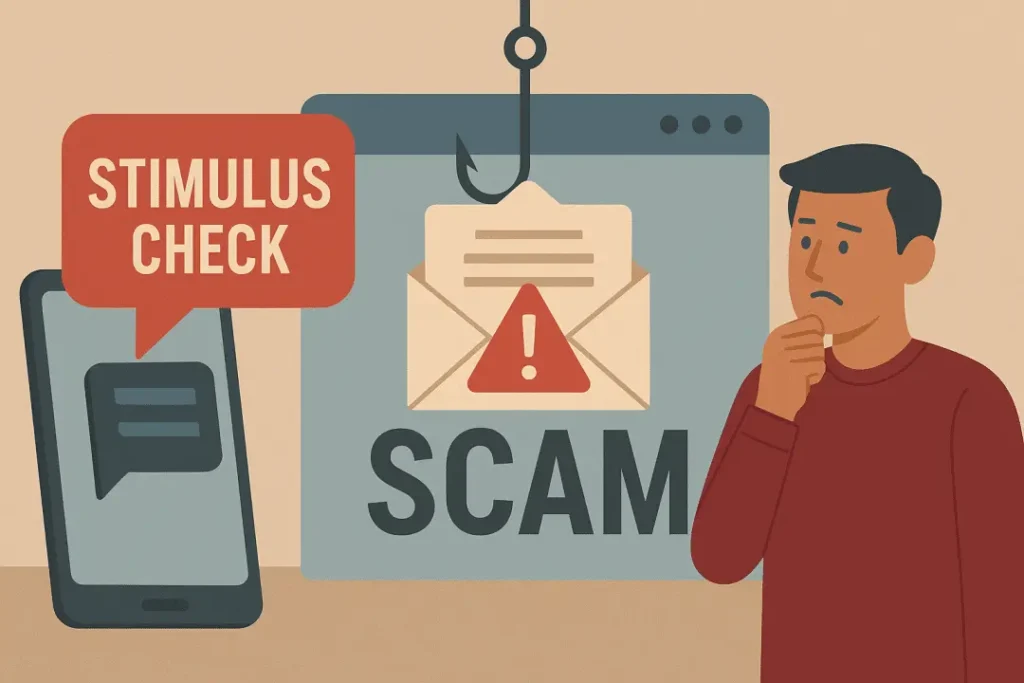As talk of new economic relief continues in 2025, millions of Americans are hoping for extra financial help. But while families wait for official updates, scammers are already taking advantage. Fake texts, emails, and even AI-generated calls are tricking people into handing over their money or personal details. Knowing how these scams work is the best way to stay safe.
Why Scammers Target Stimulus Payments
Whenever the government hints at financial aid, there’s usually a delay before official details are released. Criminals use this gap to spread confusion. They pretend to be from the IRS or the Treasury Department, sending out convincing messages about “early access” or “pre-approved” payments. The IRS has made it clear you don’t need to pay fees or apply through third parties. Payments, if approved, will either arrive by direct deposit or mailed check automatically. Anything else should raise alarm bells.
Fake Texts and Emails

One of the most common scams in 2025 comes through text messages or emails claiming your stimulus is ready. They include links that lead to fake websites designed to steal banking details and personal data. The Federal Trade Commission (FTC) warns that government agencies never send payment links by text or email. If you’re unsure, skip the message and go directly to IRS.gov for accurate information.
Checks That Bounce Back
Scammers are also sending fake checks that look surprisingly real. After you deposit the check, you’ll be told it was too much and asked to return the difference. By the time your bank realizes the check is fake, the scammer already has your money. The U.S. Treasury has confirmed real stimulus payments never involve refunds. If a check arrives unexpectedly, always verify it with your bank or through the IRS before doing anything.
Phone Calls and AI Voice Scams
Fraudsters aren’t just sending messages they’re calling too. Some use AI-generated voices or deepfake videos to impersonate IRS agents or even family members. They pressure victims into handing over Social Security numbers or bank details. The IRS says it never makes surprise phone calls about stimulus checks. If you get one, hang up immediately and use the official IRS phone number to double-check.
Social Media Traps
Another growing scam appears on Facebook, WhatsApp, and other platforms. Paid ads and posts promise instant relief money or early access programs. These ads link to fake websites built to collect your information. According to the FTC, the government never promotes stimulus programs on social media. Any ad promising quick cash is almost certainly a scam.
Protecting Yourself and Your Family
To stay safe, always rely on official sources like IRS.gov and your state’s treasury website. Never share personal details or banking information with strangers, no matter how official they sound. Suspicious activity should be reported to Report Fraud ftc.gov or directly to the IRS. It’s also important to talk with friends and relatives especially seniors about these scams. Many victims are targeted because they simply didn’t know what to watch out for.
Stay Alert, Stay Safe
As the country waits for possible relief, scammers are working overtime. Don’t let urgency or fear push you into a mistake. If something feels off, it probably is. Trust only official government updates and remember legitimate stimulus payments come automatically, without fees, texts, or shortcuts.



